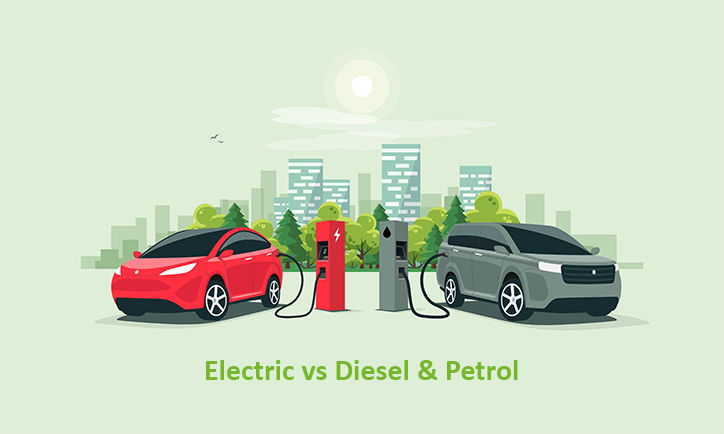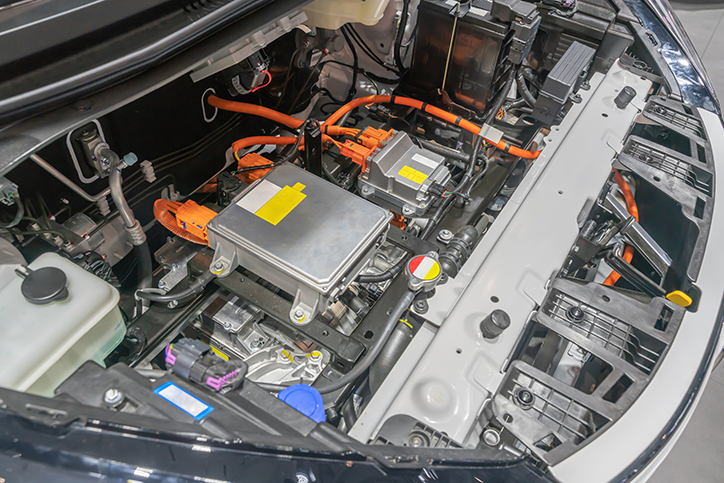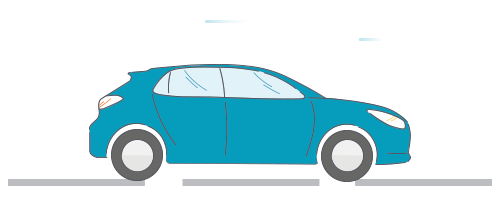We’ve all likely noticed electric and hybrid vehicles on the roads. Teslas are common sights across New Zealand, with MG’s ZS’, Hyundai’s Kona’s and Nissan’s Leaf amongst a whole host of others, as sales of electric and hybrid cars and vans increase year on year. With more aging electric vehicles on the roads, the question of how to safely and responsibly recycle these vehicles and relatively new components is an ongoing challenge for our industry.
For CarTakeBack scrap car recycling centres it’s important to make sure any vehicle can be safely and responsibly recycled, and electric vehicles are no exception! Our recyclers are well versed at removing any hazardous fluids and parts from conventional petrol and diesel cars, with well-established safe systems of work and efficient processes, but what happens when an electric vehicle crosses their threshold? Electric vehicles, which run only on battery power, are mechanically simpler than their petrol or diesel counterparts, but that doesn’t mean they are easy to recycle – or even to prepare for dismantling – and hybrid electric vehicles are more complex. Luckily, we have industry qualified staff on hand to make sure everything goes according to plan.

There are two main differences when recycling electric vehicles versus petrol and diesel:
There are some dangers that apply to all cars, mainly due to the hazardous and flammable fluids that need to be safely removed, but for any vehicle with a battery that helps towards driving the wheels, there are additional serious hazards dismantlers need to address. These are:
Depending on the model of car, this could carry a voltage as high as 800 volts. At these sorts of voltages, any battery used to power an electric or hybrid vehicle can cause serious injury or death if handled incorrectly. In addition to the electrical risks, exposure to leaking batteries can also cause breathing difficulties and skin burns. In extreme cases, if an electric vehicle battery is mishandled it can lead to an uncontrollable fire or even explosion.
The electric motors used in electric and hybrid vehicles use incredibly powerful magnets. These are so powerful that, during the dismantling of the car, they can interfere with medical devices such as pacemakers, and can even tear metallic objects or tools from pockets.
In an electric or hybrid vehicle, to help keep voltages safe and suitable for delivering the right amount of power to the motor, various complex components are used. Some of these components can hold the same amount of voltage as the battery, even when the battery has been disconnected.

Once a battery has been removed from the car, to minimise the risk of it getting damaged and potentially catching fire, injuring someone through electric shock or causing breathing difficulties through leaking chemicals, it must be very carefully handled and stored. This means any facility storing these batteries must have plenty of well-ventilated space, away from other materials such as scrap cars, fuels, tyres etc. and the batteries must not be piled on top of each other.
Because of the chemicals used inside an electric or hybrid vehicle battery, once removed from the car these must be very carefully packaged and transported to make sure there is no risk of electric shock, fire or explosion to those involved in transporting them. This sometimes involves using very expensive boxes and packaging and means that the right trucks must be used with extra safety precautions in place and properly trained drivers.
Unfortunately there are currently no facilities in New Zealand for recycling electric vehicle batteries. This means they must be exported to a special facility in Australia, which involves different types of transport, lots of paperwork and a substantial cost for each battery.
We’re already several years into our global work related to EV end-of-life processing and we continue to invest in training our vehicle recycling partners in how to safely handle EV batteries. This means, today, CarTakeBack can provide a safe and effective EV recycling service to New Zealand.
There isn’t currently any legislation in New Zealand for battery recycling, so there isn’t sanctioned pressure on the industry to respond. However, as an unavoidable issue, organisations have started to rise to the challenge and we are hopeful that official recycling targets will be set in the future to ensure the whole industry is compliant. There are schemes being set up such as Auckland’s Upcycle Ltd partnership with Toyota NZ to take in its returned hybrid batteries. Progress like this is great news for the whole industry and for members of the public concerned about the whole-life impact of EVs.
Here at CarTakeBack, we continue to support various research projects and federal initiatives on end-of-life electric and hybrid vehicle developments and battery handling. We consider it a responsibility to our customers and the environment to ensure the safe and responsible handling of any vehicle technology or material that has to be processed as the car industry progresses.




